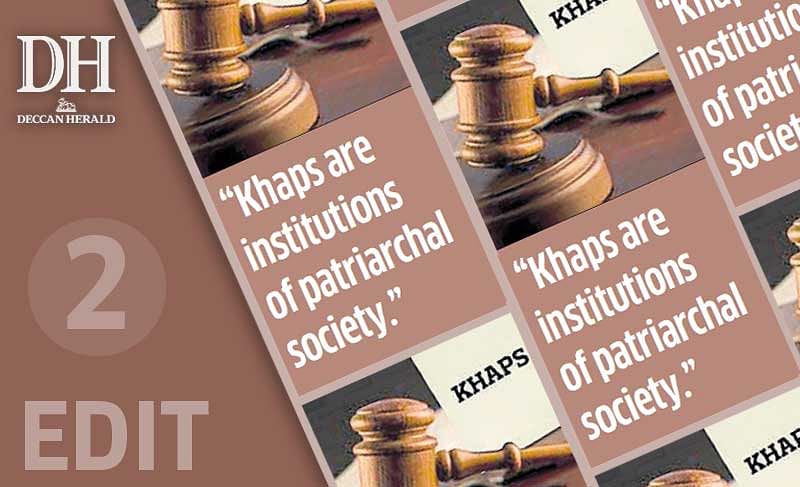
The Supreme Court has observed many times in the past that Khaps, which are traditional councils of elders who rule the roost in villages in many states in North India, have no right and power to interfere with the decisions of individuals concerning any aspect of their lives. The court has underlined the specific right of consenting adults to enter into marital relations of their choice and said that in the case of such a marriage, "no khap, individual or society can question them".
The court made its remarks during the hearings on a petition filed by an NGO which wants Khaps to be reined in. Disposing of the petition, the court has gone beyond strictures and assertions of individuals' rights and called for a suitable legislation to be enacted by Parliament to stop the activities of Khap panchayats "in entirety". The court has also prescribed a number of steps, like the use of Section 144 of the CrPC to prevent the Khaps from assembling, and preventive and remedial measures to protect vulnerable couples and to prevent 'honour killings'.
The court's continued preoccupation with the threat posed by the Khaps and the detailed enunciation of steps to deal with them show how entrenched they are in the social life of people in these states. The court had actually declared Khap panchayats illegal in 2011, but they have continued to operate with a claim of legitimacy derived from tradition and support from many leaders of society, including politicians and political parties. Politicians defer to Khaps and keep them in good humour because they command large vote banks. This is what emboldened some Khap leaders to tell the Supreme Court "not to interfere in our traditional matters" after the court made some observations in February this year.
It is for Parliament to frame a legislation specifically aimed at Khap panchayats, as the court has proposed, and for the governments, both at the Centre and in states, to ensure that these retrograde bodies do not function at all.
Unfortunately, there is an environment in the country in which regressive notions are gaining strength and the space for the individual is shrinking. Khap panchayats are institutions of a deeply patriarchal society and flaunt its mindset, steeped in caste prejudices and clan loyalties. Their ideas and practices are completely at odds with the values and ideals of the Constitution. They have always sought to defy the courts and other agencies which tried to control them.
The Supreme Court ruling provides a test for Parliament and the governments, and they must ensure that no individual or family suffers in the future from the illegal actions of these bodies.